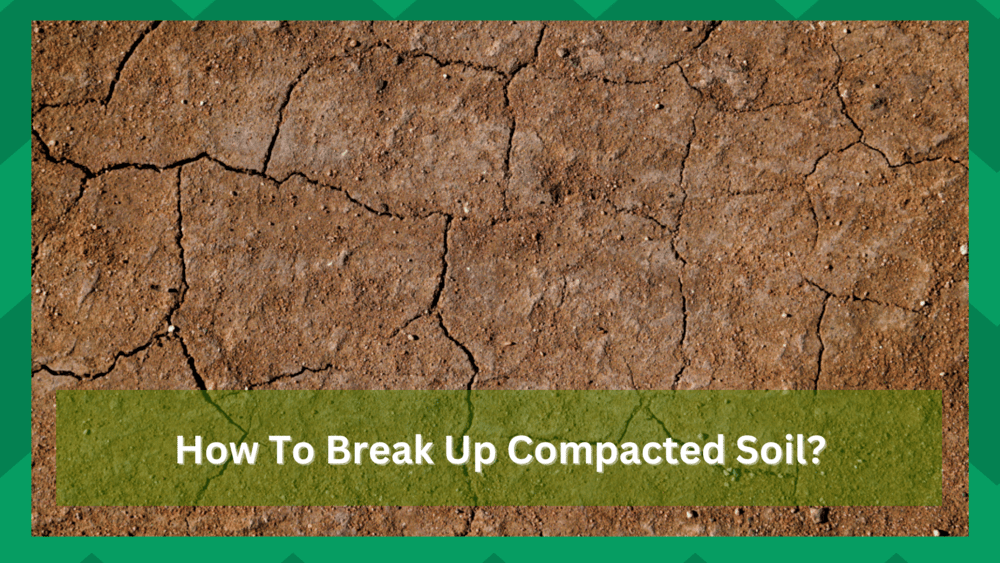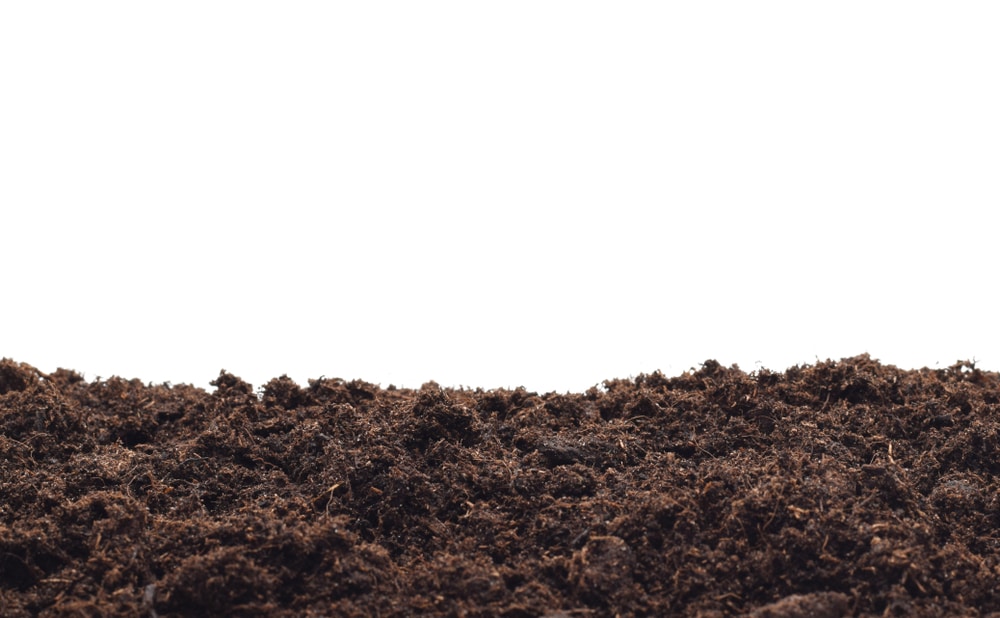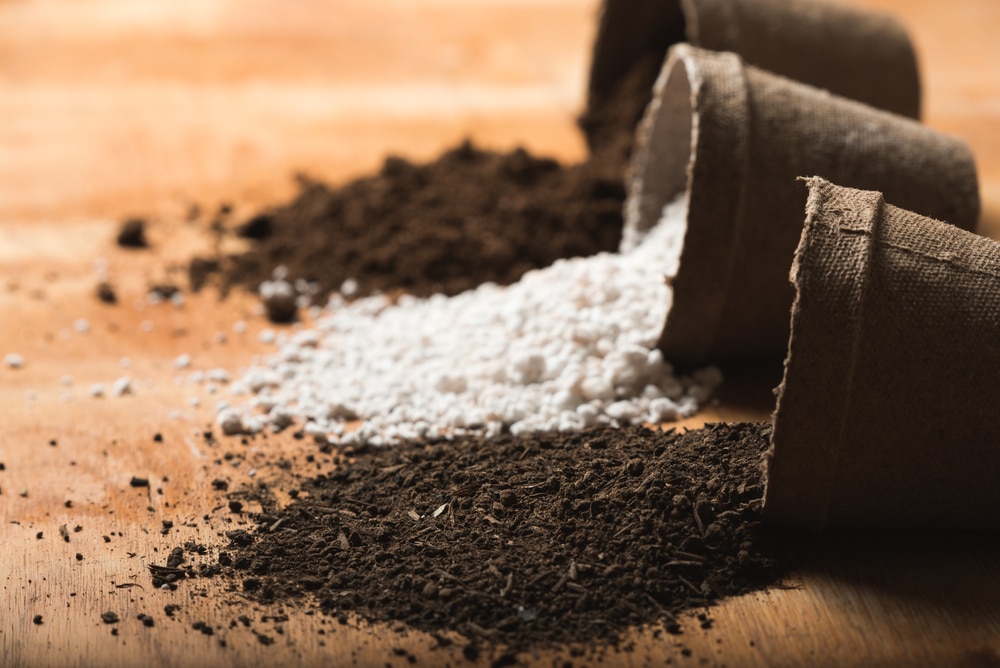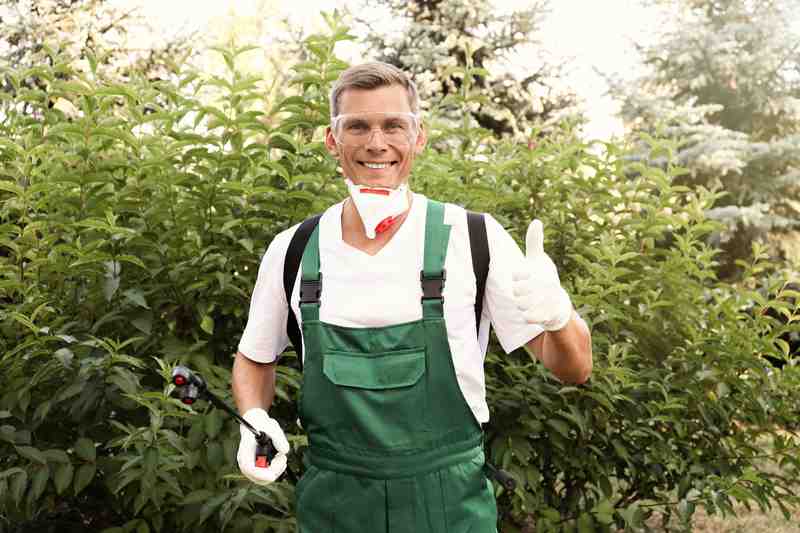
It is impossible to get your plants to survive in compacted soil. In compacted soil, root development is hindered, and the plant cannot exact any nutrients from the soil.
This slowly leads to the plant’s death. This is why many gardeners keep track of the soil’s health.
They add compost or break up the compacted soil every few months before planting new crops.
If you’re also struggling with compacted soil and don’t know of suitable methods to break up compacted soil, let us help you with a few solutions that will help you long term. Here are a few strategies on how to break up compacted soil.
Is compacted soil a serious issue?
Compacted soil is a serious issue that affects the health of plants and the environment. Compaction occurs when soils are compressed by heavy machinery, animal traffic, or even foot traffic over time.
This compression can reduce air spaces in soil and make it difficult for plant roots to penetrate, leading to stunted growth and weakened plants.
Compacted soils also lead to reduced water infiltration, increased runoff, higher erosion rates, and decreased biodiversity and habitat quality for wildlife species.
In addition to these ecological consequences, compaction can also increase costs associated with construction projects due to its effects on foundations and other structures built in compacted areas.
These factors demonstrate why preventing compaction is important in maintaining healthy ecosystems and avoiding costly damage from construction activities.
How To Break Up Compacted Soil
There can be many reasons your plant might suffer from compacted soil. One of the most effective and long-term methods gardeners can use to avoid the compact soil issue is adding organic matter to the ground every few weeks.
This method is sustainable long-term and avoids damaging your plants while adding more nutrition to the soil.
As long as there is sufficient organic matter in the ground, the compost decomposition will help aerate the soil and encourage the growth of the plants.
However, if the soil is already damaged, you must rely on gardening machines and tools to break up compacted soil.
The cheapest method is to buy a prong from an online gardening store and break up the compacted soil. It will take a lot of work.
But, you will be able to free up enough soil to plant new crops into the soil. If you use this method, ask your neighbours or friends to come over and help you with the technique.
However, if your budget allows, it would be best to hire a landscaping company and let them fix the compacted soil for you.
They have the proper equipment available to take care of the compacted soil. You won’t have to pay any full payment on expensive machinery, and landscaping professionals can work more efficiently to fix the soil.
So, it is one of the best options for beginners struggling with compacted soil.
However, if you’re experienced enough and don’t want to hire a landscaping company, you can buy mulching machinery yourself.
Then, use this machinery to break up the soil. It won’t take more than a few hours to aerate and free up compacted soil with proper machinery.
However, mulching machinery can cost you hundreds of dollars, depending on where you live. But this machine will help you sort out the compacted soil issue in the long run.
You can choose one of these three methods to break up the compacted soil. The cheapest and most practical method would still be to use simple gardening tools to break up the ground.
However, if the garden is too enormous and you can’t spare the time to fix this, choosing the landscaping option will better serve your needs. Hopefully, you will be able to fix the soil issue after going through these procedures.
What leads to compacted soil in farming?
Compacted soil is a major problem in modern farming, and it can lead to reduced crop yields and decreased plant health.
Compaction occurs when the weight of heavy machinery or other objects compresses the soil particles together, decreasing porosity and air space within the soil.
This makes it harder for water, oxygen, and essential nutrients to penetrate the root zone of plants.
As such, compacted soils are more prone to drought stress, nutrient deficiencies, poor aeration for roots and microbial activity – all of which can have an adverse effect on crop production.
Moreover, compacted soils also increase surface runoff rates during rainfall events leading to increased erosion losses from fields as well as higher levels of sedimentation entering nearby waterways.
Therefore understanding what leads to compaction is an important step toward preventing this issue from occurring on farms worldwide.
To assess soil for compaction, begin with understanding the soil type and its inherent characteristics.
Understanding soils is key – certain soil types are more prone to compaction than others due to their greater susceptibility to pressure.
Loam or silt loam soils with a high percentage of clay particles are most susceptible, followed by sandy soils with low clay content.
The next step is to assess the management practices on the farm that may lead to compaction.
This includes examining how often and how long heavy machinery such as tractors and combines are operated and what type of tillage operations are used.
Compaction can also occur due to surface traffic from livestock grazing or ATV use.
Consider the impacts of weather on soil compaction. Heavy rains can soften soils and make them more susceptible to compaction from machinery or other activities.
Therefore, proper field operation timing is essential to avoid exacerbating soil compaction during wetter months.
Overall, understanding what leads to compaction in a particular field can help inform management practices and ultimately lead to healthier soils, improved crop yields, and decreased sedimentation of nearby waterways.
What to avoid when breaking compacted soil?
Breaking compacted soil can be difficult and labor-intensive, but if done correctly, it can help promote better root growth in your garden.
It is important, however, to avoid common mistakes when breaking up the soil that could end up doing more harm than good.
Avoid using excessive force when breaking up the soil, as this may damage delicate roots already in the ground. Instead, use a sharp spade or shovel to loosen and aerate the soil before turning it over with a fork or rake.
Also, try not to turn over too much of the topsoil at once, as this will cause nutrients from underneath to mix with those on top, which could adversely affect plant life.
Moreover, refrain from incorporating any chemicals into your soil as these are likely to disrupt its natural balance and may even lead to contamination of nearby bodies of water should they enter through runoff or leaching.
Make sure you keep chunks of clumped earth from lying around after you’ve finished breaking up the ground since these are likely to dry out quickly due to poor air circulation and reduce your chances of success when planting new crops later down the line.
Finally, remember to use compost to help add essential nutrients to the soil and ensure that your plants get the best possible start.
Doing so will result in healthier, happier plants better equipped to withstand unexpected weather conditions or pests.
By following these guidelines, you should be able to successfully break up compacted soil and enjoy your garden’s bounty for many seasons.
To Conclude
One of the most common methods gardeners use to free up compacted soil is using heavy-duty tools to break into the top layers of the soil.
You want to free up a large area and ensure that the soil is even so that water does not collect in one place.
After freeing up the top two layers of compacted soil, you should grow plants in this soil. Once there is enough root development, the compacted soil issue should only affect plant growth a little.
Meanwhile, you can also use fertilizers like gypsum to help break down the soil. The fertilizer will simultaneously improve plant growth while managing the compact soil issue.
However, you must stick to recommended usage, or excess dosage will further damage your plants. So, refer to an expert before using any fertilizer on your compacted soil.
Other than this, if you have freed up compacted soil already, mix the compost and different organic mixture within the soil.
This will help you avoid this issue in the future. Hopefully, you won’t have to deal with the same problem again. Additionally, you will be able to manage your garden more effectively.



